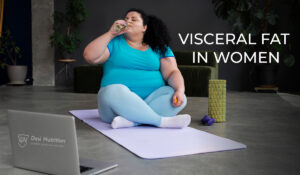Congratulations! You are soon going to become a mother. Being a mother is an unmatched feeling. You are birthing another human being. This article will deal with the most crucial part of the journey of a to-be-mom. If you are pregnant you have to ensure that you are taking proper nutrition which is reaching to the baby as well. There are certain foods to avoid during pregnancy and make some lifestyle changes. Let’s dive deep into this topic.

Becoming a mother could be overwhelming and people usually get blue-feet after some time of getting the news of being pregnant. But it’s the start of your new journey. The journey is going to be a long one for 9 months. Make sure you make it a smooth one.
The journey comes with its ups and downs, but a healthy pregnancy can be assured by giving proper nutrition to the baby. Mothers might think to lose weight during pregnancy but it is not advised. In fact, a mother should focus on maintaining a healthy weight during pregnancy that can support the baby’s development in the womb.
Proper nutrition is the key to a healthy pregnancy and there are some foods that you need to avoid during pregnancy because they could lead to potential complications before or during childbirth. Your baby’s life could be at risk if you do not pay attention to nutrition.
Why is nutrition important during pregnancy?

Nutrition is important during pregnancy for both the mother and the baby. You need to focus on consuming a balanced diet packed with nutrition that can help with your overall health and support a healthy pregnancy. For better understanding, read the given points to know why nutrition is important during pregnancy:
Nutrition supports fetal development:
- Nutrients like folic acid, iron, calcium, and omega-3 fatty acids are important for fetal development.
- Folic acid is essential for the development of the neural tube which becomes the baby’s brain and spinal cord.
- Iron is essential for the production of hemoglobin. Hemoglobin is the protein in red blood cells that carries oxygen to the baby. Pregnant women are also recommended to consume iron supplements to prevent iron deficiency in the baby which can lead to anemia, preterm delivery, and low birth weight.
- Calcium is necessary for the development of bones and teeth along with the development of a healthy heart, nerves, and muscles in a baby.
- Omega-3 fatty acids are essential for the development of a baby’s brain and eyes. They are also good for the mother’s heart health.
Nutrition promotes maternal health:
Nutrition promotes maternal health throughout the pregnancy. Ensuring to consume a balanced diet will help in the following ways:
- During pregnancy, you would need more energy. To have sustainable energy you would need calories from natural food sources which can provide you with essential nutrients.
- Nutrients like vitamins C and E, zinc, and selenium are necessary during pregnancy as they strengthen the immune system. A strong immune system will help the mother’s body to fend off infections that might be harmful to the baby.
- Consuming proper nutrition can reduce the risk of complications related to pregnancy. A pregnant woman can develop gestational diabetes, preeclampsia, or unexplained weight gain which could lead to health issues.
Nutrition helps to reduce the risk of pregnancy-related complications:
A balanced diet packed with nutrients will help reduce the risk of birth defects and complications during the pregnancy. Nutrients are essential because:
- Folic acid reduces the risk of neural tube defects which makes the brain and spinal cord of the baby.
- Iron lowers the risk of preterm birth or low birth weight and is also essential for the production of hemoglobin.
- Calcium is necessary for bone health and reduces the risk of preeclampsia.
- Vitamin D decreases the risk of preeclampsia and ensures proper bone development of the baby.
Nutrition assures long-term health benefits for children:
- The mother is the source of nutrition for the baby when the fetus is developing. Proper nutrition will help to develop the cognitive development of the baby. Nutrients like omega-3 fatty acids, iron, and iodine help to enhance cognitive functions.
- Maternal nutrition is essential for a baby’s later life. It can influence metabolism, which will help to reduce the risk of obesity and metabolic disorders in later life.
- Vitamins and minerals help to develop a baby’s immune system. A balanced diet rich in vitamins and minerals will help the baby’s body protect against various illnesses.
Nutrition helps with emotional and mental well-being:
Nutritious food helps you feel good and when you are feeling good you are also feeling less stressed and more relaxed. Nutrients like omega-3 fatty acids, vitamin D, and B help to regulate your mood.
Proper nutrition also helps to manage stress levels which is important for both the mother and the developing baby.
Nutrients their sources

Here is a list of key nutrients that both the mother and the baby need during pregnancy:
Folic acid:
Folic acid is found in fruits and vegetables like leafy greens, citrus fruits, beans, and fortified cereals.
Iron:
Foods like red meat, poultry, fish, lentils, spinach, and iron-fortified cereals are rich sources of iron.
Calcium:
To get calcium, consume foods like dairy products, fortified plant milk, leafy greens, and tofu.
Omega-3 fatty acids:
Fatty fish like salmon and sardines are rich sources of omega-3 fatty acids. Include nuts and seeds like walnuts, flaxseeds, and chia seeds in your diet to get omega-3 fatty acids.
Vitamin D:
The best source of vitamin D is sunlight. But not the scorching heat. You just sunlight exposure. Along with fortified dairy products, fatty fish and eggs are also sources of vitamin D.
Protein:
Proteins are the building blocks of the body, ensuring natural protein sources. Elan meats, poultry, fish, eggs, and seeds. You can also explore plant-based protein sources if you are vegetarian or vegan.
Foods to avoid during pregnancy

Pregnancy is a time of joy, excitement, some confusion, and of course precaution. Precaution is necessary especially when it comes to diet. It is crucial for a mother-to-be to eat clean and healthy foods and focus on consuming a balanced diet. But there are some foods that are not good for your or your baby’s health. Here is a list of foods that you need to avoid during pregnancy:
Avoid raw and undercooked meat:
You have to eat properly cooked meat with no red or pink areas remaining. Eating raw or uncooked foods will lead to the risk of exposure to harmful bacteria and parasites. These bacteria and parasites are harmful not just to you but to your baby as well. Raw and uncooked meat can lead to the risk of developing infections like toxoplasma, salmonella, and listeria.
Avoid raw eggs:
Avoid raw eggs and certain homemade things that contain raw eggs like dressings, sauces, and desserts like mousse or tiramisu. Raw or undercooked eggs can lead to food poisoning because of salmonella. It will worsen pregnancy symptoms like fever, vomiting, and stomach cramps.
Avoid certain seafoods:
Fish and seafood are a great source of omega-3 fatty acids but some seafoods are high in mercury which can lead to mercury poisoning or listeria. You have to exclude seafood high in mercury so it does not harm the baby’s nervous system. Avoid foods like king mackerel, tilefish, swordfish, sushi, sashimi, and raw shellfish.
Avoid unpasteurized dairy products:
Unpasteurized dairy products carry a bacteria called listeria which causes listeria infections. The infection could lead to miscarriage, stillbirth, or severe illness in newborns.
Avoid ready-to-eat foods:
Avoid ready-to-eat foods and deli meats because they also carry listeria even if stored properly they could be exposed to the bacteria.
Avoid certain cheeses:
Soft cheeses are made from unpasteurized milk which should be avoided because of the risk of listeria infection.
Avoid raw sprouts:
Raw sprouts carry harmful bacteria that can be harmful to your and your baby’s health.
Avoid eating fruits and vegetables without washing them:
Unwashed fruits and fruits carry harmful bacteria, soil, and pesticides that are harmful if consumed. Fruits and vegetables make up most of your diet during a healthy pregnancy. Make sure you wash them thoroughly.
Avoid caffeine:
Caffeine is a source of quick energy. During pregnancy, you need sustainable sources of energy. However moderate intake of caffeine is considered safe but excess consumption is linked to miscarriage and low birth weight.
Avoid alcohol:
No amount of alcohol consumption is safe during pregnancy. Alcohol consumption can lead to Fetal Alcohol Spectrum Disorders (FASD). This could lead to a range of lifelong physical, behavioral, or intellectual disabilities in the baby. Make sure you cut alcohol completely from your life to support a healthy pregnancy.
Frequently Asked Questions (FAQs)
What should a pregnant woman eat the most?
Ans. A pregnant woman should focus on nutrients and each nutrient-rich food. You should focus on high proteins like fish, chicken, turkey, eggs, peanut butter, nuts, and beans.
Should I drink milk during pregnancy?
Ans. If you are not lactose intolerant, milk could be an essential part of your diet while pregnant because it is a good source of calcium. Avoid consuming unpasteurized milk as it might lead to certain infections which are harmful to your and your baby’s health.
How to increase fetal weight?
Ans. You can increase fetal weight by adding more protein to your diet. Protein is vital for a baby’s growth and development. Make sure to include foods like lean meat, chicken, poultry, seafood, eggs, leafy green vegetables, tofu, and tempeh in your diet.



